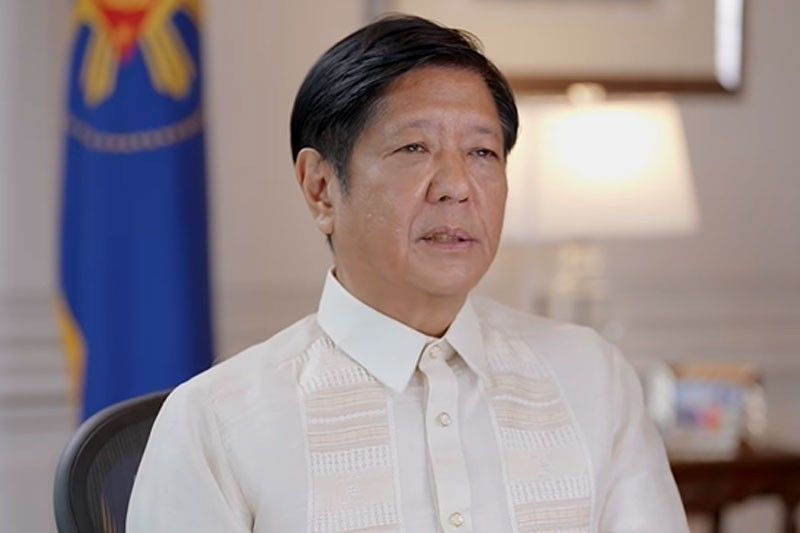MMDA vows clearer guidelines on e-bikes, e-trikes restriction
- Balitang Marino

- Mar 16, 2024
- 3 min read

MANILA, Philippines, March 16 ------ The Metropolitan Manila Development Authority (MMDA) said it is all set to implement its April 15 restriction on electric bicycles and electric tricycles but that it would address concerns of various transport and mobility groups in its Implementing Rules and Regulations (IRR) about the new policy. “Tuloy na tuloy (It will definitely push through),” said MMDA chairman Romando Artes, in a press conference at the MMDA head office in Pasig City.
Earlier, transport and mobility groups asked for a delay in the enforcement of the restriction of e-bikes and e-trikes in national roads in Metro Manila. Move As One Coalition, composed of over 100 groups, also asked for more public consultations on guidelines for light electric vehicles and better bike lane infrastructure in the capital region given that these are shared with e-bike users. But Artes said that rather than delay the April 15 implementation, the MMDA would just release the draft IRR to these groups “at least 15 days before” so that they can give their feedback.
The IRR, said Artes in a meeting with the transport and mobility groups before the press conference, would clear up aspects of the policy. Confusion and alarm had greeted the “ban” when it was first announced because it appeared to cover all two-wheeled e-vehicles, even those that could already reach speeds of traditional motorcycles. The MMDA officials asked e-vehicle groups to help update their e-vehicle classifications to reflect more current technology. The IRR, said Artes, can also allow e-bikes and e-trikes to cross or U-turn on national roads in certain parts.
But discussions got more heated when the meeting turned to the gaps in bike lane infrastructure and infrastructure for e-vehicles. A recent Rappler documentary shows these glaring deficiencies in Metro Manila bike lanes. The e-bike and e-trike restriction means the only way e-bike riders can go on national roads is if that road has a bike lane. The active transport groups said the bike lane network in Metro Manila is still sorely lacking and unsafe, despite government funds being allocated for their improvement. “Ang tanong ng aming mga grupo at ng mga vulnerable road users, imbis po na paalisin ang gumagamit ng mga e-bike at e-trike sa mga highway na ito, na saan na po ang nararapat na imprastraktura para po ma-ensure na maging safe tayong lahat?” asked Cristina Batalla of Make It Safer Movement during the MMDA meeting.
She pointed to the Special Provision on People Mobility in the MMDA’s own 2024 budget. A look at the document states that: “The MMDA shall promote people mobility through road sharing projects and activities as well as the use of non-motorized modes of transportation. The amount appropriated herein for the Traffic Management Program shall be used to cover the funding requirements for the promotion of people mobility.”
The Traffic Management Program was allocated over P65 million. Artes’ initial response was to question whether that special provision was in the Department of Transportation’s budget and not the MMDA’s. But proven wrong, he said that even if that were the case, Metro Manila’s road system just couldn’t accommodate the type of bike lanes the groups wanted. “Kahit may ganyang mandato, siguro naman kung nag-iikot ka sa Metro Manila, ‘yung situation ng kalsada natin, hindi kaya lahat na ibigay o pagbigyan ‘yung ganyang klaseng mandato. Kulang na kulang talaga yung spaces natin,” he said.
Later on, he sought to give advocates of wider bike lanes a “reality check.” For one thing, he said, did they not consider that there are many car-selling establishments along EDSA? “Hindi kami papayag dahil imaginin mo, ang daming mga tindahan ng sasakyan doon. Kung isasara namin isang lane, paano sila lalabas, so didiretso sila sa second lane? Come on,” he told the groups. We have to live in the reality of life here in Metro Manila. We cannot insist on everything we want. And we cannot please everybody here,” he added later on.
Asked by Rappler at the press conference what the longterm plan of MMDA is given that laws like the Electric Vehicle Industry Development Act (EVIDA) orders government to construct lanes for e-vehicles, Artes said they would wait until vehicular traffic abates in the metropolis. “Siguro ‘pag efficient na at maganda na yung mass transportation natin, particularly ‘pag nabuksan na yung MRT7, yung subway, mababawasan naman po yung sasakyan, baka by that time po, lumuwag yung kalsada na ma-accommodate sila,” said the MMDA chief.
Source: rappler.com





Comments